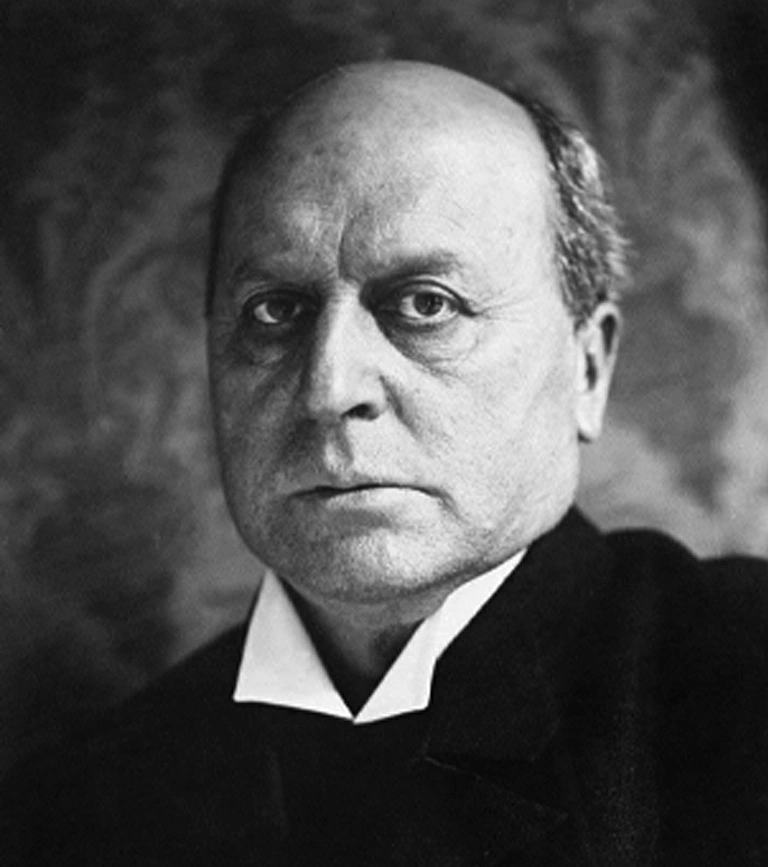
Henry James
15 April 1843
28 February 1916 (aged 72)
Henry James was an American-British author. He is regarded as a key transitional figure between literary realism and literary modernism, and is considered by many to be among the greatest novelists in the English language.
His fundamental theme was the innocence and exuberance of the New World in clash with the corruption and wisdom of the Old, as illustrated in such works as Daisy Miller (1879), The Portrait of a Lady (1881), The Bostonians (1886), and The Ambassadors (1903).
Henry James was born in New York in 1843. He was named for his father, a prominent social theorist and lecturer, and was the younger brother of the pragmatist philosopher William James.
In the strictest sense of the word, Henry James had no formal education. As a youth, he had private tutors. Then in his twelfth year, his father took the entire family to Europe, where they moved freely from Switzerland to France to Germany in pursuit of stimulating conversation and intellectual ideas.
The world of Europe left an everlasting impression on young Henry James. He was ultimately to return and make his home in Europe.
When the family returned from Europe, the elder James decided to settle in New England. He chose Cambridge because this was the center of American intellectual thought.
Many of the writers of Cambridge, Boston, and nearby Concord, where Emerson and Thoreau lived, were often visitors in the James household. It was in Boston that James met the first great influence on his literary career. He established a close friendship with William Dean Howells, who as editor of one of America’s leading magazines, was able to help James in his early efforts to write and publish.
In Boston, Henry James enrolled briefly in the Harvard Law School but soon withdrew to devote himself to writing.
James is one of the major figures of trans-Atlantic literature. His works frequently juxtapose characters from the Old World (Europe), embodying a feudal civilization that is beautiful, often corrupt, and alluring, and from the New World (United States), where people are often brash, open, and assertive, and embody the virtues of the new American society particularly personal freedom and a more exacting moral character.
James explores this clash of personalities and cultures, in stories of personal relationships in which power is exercised well or badly.
Many of James’s stories may also be seen as psychological thought experiments about selection.
Major novels
Roderick Hudson is a Künstlerroman that traces the development of the title character, an extremely talented sculptor. this was James’s first serious attempt at a full-length novel.
In The Portrait of a Lady, James concluded the first phase of his career with a novel that remains his most popular piece of long fiction.
The second period of James’s career, which extends from the publication of The Portrait of a Lady through the end of the 19th century, features less popular novels, including The Princess Casamassima, published serially in The Atlantic Monthly in 1885–1886, and The Bostonians, published serially in The Century during the same period.
This period also featured James’s celebrated Gothic novella, The Turn of the Screw.
The third period of James’s career reached its most significant achievement in three novels published just around the start of the 20th century: The Wings of the Dove, The Ambassadors, and The Golden Bowl.
Shorter narratives
James produced a number of very short stories in which he achieved notable compression of sometimes complex subjects. The following narratives are representative of James’s achievement in the shorter forms of fiction.
Plays
At several points in his career, James wrote plays, beginning with one-act plays written for periodicals in 1869 and 1871[66] and a dramatization of his popular novella Daisy Miller in 1882.
From 1890 to 1892, having received a bequest that freed him from magazine publication, he made a strenuous effort to succeed on the London stage, writing a half-dozen plays, of which only one, a dramatization of his novel The American, was produced.
In 1893, however, he responded to a request from actor-manager George Alexander for a serious play for the opening of his renovated St. James’s Theatre, and wrote a long drama, Guy Domville, which Alexander produced.
A noisy uproar arose on the opening night, 5 January 1895, with hissing from the gallery when James took his bow after the final curtain, and the author was upset.
The play received moderately good reviews and had a modest run of four weeks before being taken off to make way for Oscar Wilde’s The Importance of Being Earnest, which Alexander thought would have better prospects for the coming season.
After the stresses and disappointment of these efforts, James insisted that he would write no more for the theatre, but within weeks had agreed to write a curtain-raiser for Ellen Terry.
This became the one-act “Summersoft”, which he later rewrote into a short story, “Covering End”, and then expanded into a full-length play, The High Bid, which had a brief run in London in 1907, when James made another concerted effort to write for the stage.
James died on 28 February 1916, in Chelsea, London, England.